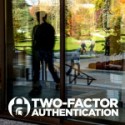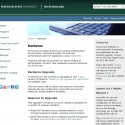Tag: authentication

MSU to roll out two-factor authentication starting March 16
Over the next six weeks, Michigan State University is adding steps to safeguard personal and institutional data by applying two-factor authentication to human resources, payroll, and finance systems that are part of our Enterprise Business Systems (EBS).
Once two-factor authentication is implemented for EBS, it will be expanded to additional MSU applications. Read Full Article →

MSU to rollout two-factor authentication in the spring of 2015
Cyber attacks on computer systems and networks to obtain personal information and other confidential data take place on a daily basis.
To maintain the integrity and security of our institution’s data, Michigan State University is taking steps to increase the level of protection in systems amassing sensitive and personal information by implementing two-factor authentication in spring 2015. Read Full Article →

IT Services launches OAuth 2.0 authentication for campus use
IT Services launched the OAuth 2.0 protocol as another authentication option for MSU developers, units, departments, and colleges.
OAuth provides secure authorization to certain details or attributes of a user without the application needing to receive the user’s password.
Additionally, OAuth doesn’t require client software to be installed for an application to use it and is programming language agnostic. Read Full Article →

MSU Kerberos upgrade to be completed August 6
IT Services is in the process of upgrading to new 1.11.2 version of Kerberos. Further details and instructions on the upgrade are available.
This new version will introduce new features of Kerberos including file-less configuration using DNS and account locking for invalid password attempts.
Reasons to upgradeThis upgrade to Kerberos 5 current release is necessary for a number of reasons, including:
- Newer MIT Kerberos server software allows for more stringent password policies, including account lockout.


